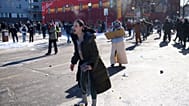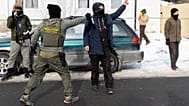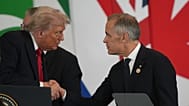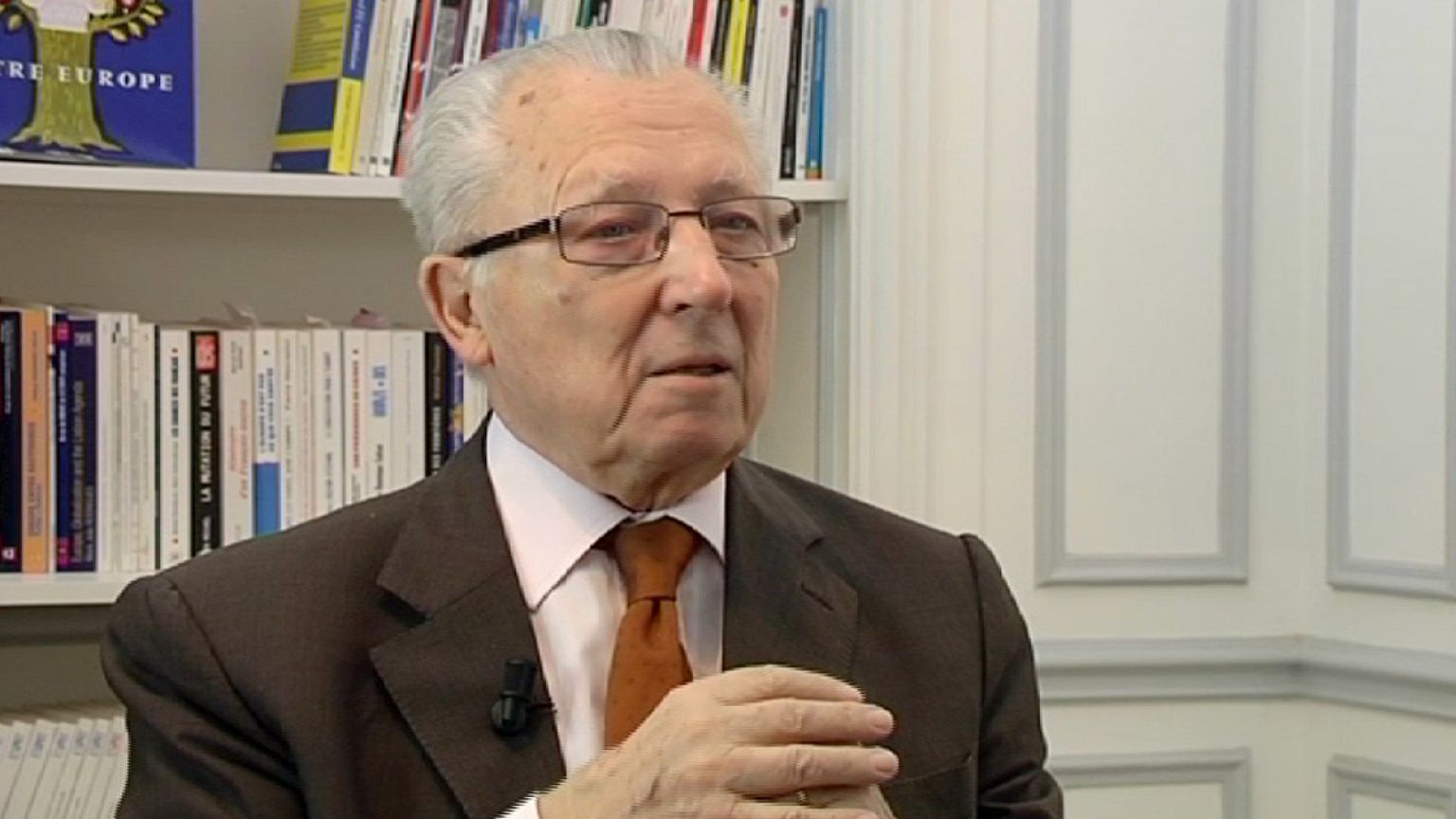As president of the European Commission for 10 years, Jacques Delors has been one of the principal architects of the EU.
With the Nobel Peace Prize going to the European Union, euronews met him at the Paris office of “Our Europe”, the think-tank he set up.
Giovanni Magi, euronews: “Thinking back to the moment you learned the Norwegian committee had chosen the EU for the Nobel Peace Prize, what was your first reaction, your first thought?”
Jacques Delors, former President of the European Commission: “I thought of all the fathers of Europe and the decisive moments marked by a vision and a feeling that’s spiritual, even moral. And I also thought of all the activists for the European cause, because it’s not easy. There are delicate times, like now, so I also expect some sarcasm from certain social networks and newspapers, but I consider it a reward and an energising force for all Europeans.
euronews: “The Norwegian Nobel committee spoke of the enlargement of the European Union as a new era in history. But critics have often said that expansions, particularly 2004 when 10 countries joined at the same time, are the source of the Union’s policy management problems. What do you think?”
Jacques Delors: “On the one hand there’s the political vision with very successful enlargement – that’s Spain and Portugal. The leaders at the time – I was the Commission president then – wanted to show their people who were emerging from a form of dictatorship, that we would open our arms to them so they could try to renew or re-establish democracy. “And at the same time, because their standard of living was lower than average, I had proposed this policy of cohesion which now represents more than a third of the European budget.
“That was a big moment. Then, as for the countries of EFTA, the free-trade area founded by Britain to counter the original six members of the Common Market, I proposed a big free-trade zone with them. And yes, apart from Norway they all preferred to join.
“And then there was the fall of the Berlin Wall. It opened the way to enlargement for other countries. I still think that this enlargement was done too quickly. We didn’t try to put our own house in order before welcoming them in.
“And what’s more I was beaten at the European Council in Lisbon in 1992 when I said they will join, but don’t put us under pressure. I wanted first to sort out our institutions and financial rules. But there was enthusiasm to do it there and then, or maybe also for some political aims, anyway in my opinion, enlargement and deepening was not very well balanced.”
euronews: “The financial and economic crisis has highlighted the limits of the euro. Was the single currency a good idea in the end?”
Jacques Delors: “Yes. It was a good decision but with a flaw in the construction. If you look at the report from the Delors committee — that’s what it’s called I’m sorry — the report that followed the European Council’s request on how the euro could be done, there was an economic section and a monetary section.
“The economic part had been neglected and that construction fault is what’s made us pay dearly subsequently, because there was no co-ordination of economic policy, no open discussions between ministers which would have let everyone see that Ireland, Spain and Portugal were heading head-long into danger. And why? Because at that moment the euro protected, but did not stimulate. The euro even protected our mistakes. And it’s this flaw in construction that we have to fix today.”
euronews: “What has to be done to instil people with trust in Europe?”
Jacques Delors: “The countries that are in difficulties, when I read their reactions, they never say ‘Our governments have made blunders, we are paying for them’. No, they say ‘It’s the dominant ideology, or even it’s Europe’s fault’.
“So there’s never been as much need to explain Europe in terms of what it brings and what it represents as a project for the future.
“I’ll tell you simply, since I’m no longer in the business and in my day things were a little simpler, but these causes have to be attacked. Firstly, it’s not for the president of the Commission to go touring all over Europe.
“Governments, instead of saying it’s Brussels’ fault or the United States’ fault, should be saying, ‘You know, that’s how we’ve done it up until now, we have to continue, and we’ll get there in the end’, whether it’s from a point of view of living together, or employment and development.
euronews: “Will there be political union in Europe one day?”
Jacques Delors: “I can’t see it at the moment. What I see is this: since differentiation has always been one of the driving forces in Europe, I believe that the eurozone will have to be consolidated, with the strengthened cooperation that is foreseen in the treaties. And the eurozone will have its own budget, its own mechanism of economic regulation and a European debt agency, which would be able to keep an eye out and maybe express solidarity before the storm hits.
“And then I see a great Europe, open, basically founded on the single market, the four freedoms of circulation — people, services, goods and capital — but also with a world view — of development aid and neighbourhood policies, and everything that is done for victims of tragedies — and I see this great Europe as a model that could inspire a reform of the United Nations.”
euronews: “Maybe the euro-crisis has discouraged potential future members – like Turkey for example?”
Jacques Delors: “I think there have been too many European statesmen who have said: ‘Never Turkey’. Personally I think that was a big mistake because we have given the world the impression that we are this Christian group, this Christian club, and there’s nothing quite so good at driving a wedge between people.
“There is already enough of a struggle against the integralists, those who deny others, who even want to attack others, to create troubles so they can’t be added.
“Too many governments think small. I’ll end by explaining that with a phrase from the former president of ‘Our Europe’ Tommaso Padoa-Schioppa who was a remarkable finance minister in the Prodi government.
He used to say: ‘Rigour in the nations, recovery in Europe.’ If you applied that to financial perspectives, simply adding 200-billion for the whole of the period, and if that 200-billion was dedicated to ecological growth, infrastructure and research, believe me Europe would find its feet again.”















